SEO
SEO (Search Engine Optimization) is the process of optimizing your website’s structure and content to improve keyword rankings in search engines, attract more users, and increase outbound data transfer.
SEO is an ongoing process. Momen provides a comprehensive set of configuration tools, including:
- Rendering Pattern
- Sitemap
- robots.txt
- Custom header/body
- H tags
- …
Note: Before using SEO features, ensure you have a basic understanding of SEO. Refer to online resources for more information.
Configuration Guide
Open Settings and go to SEO. All configurations here take effect only after the Project is Published.
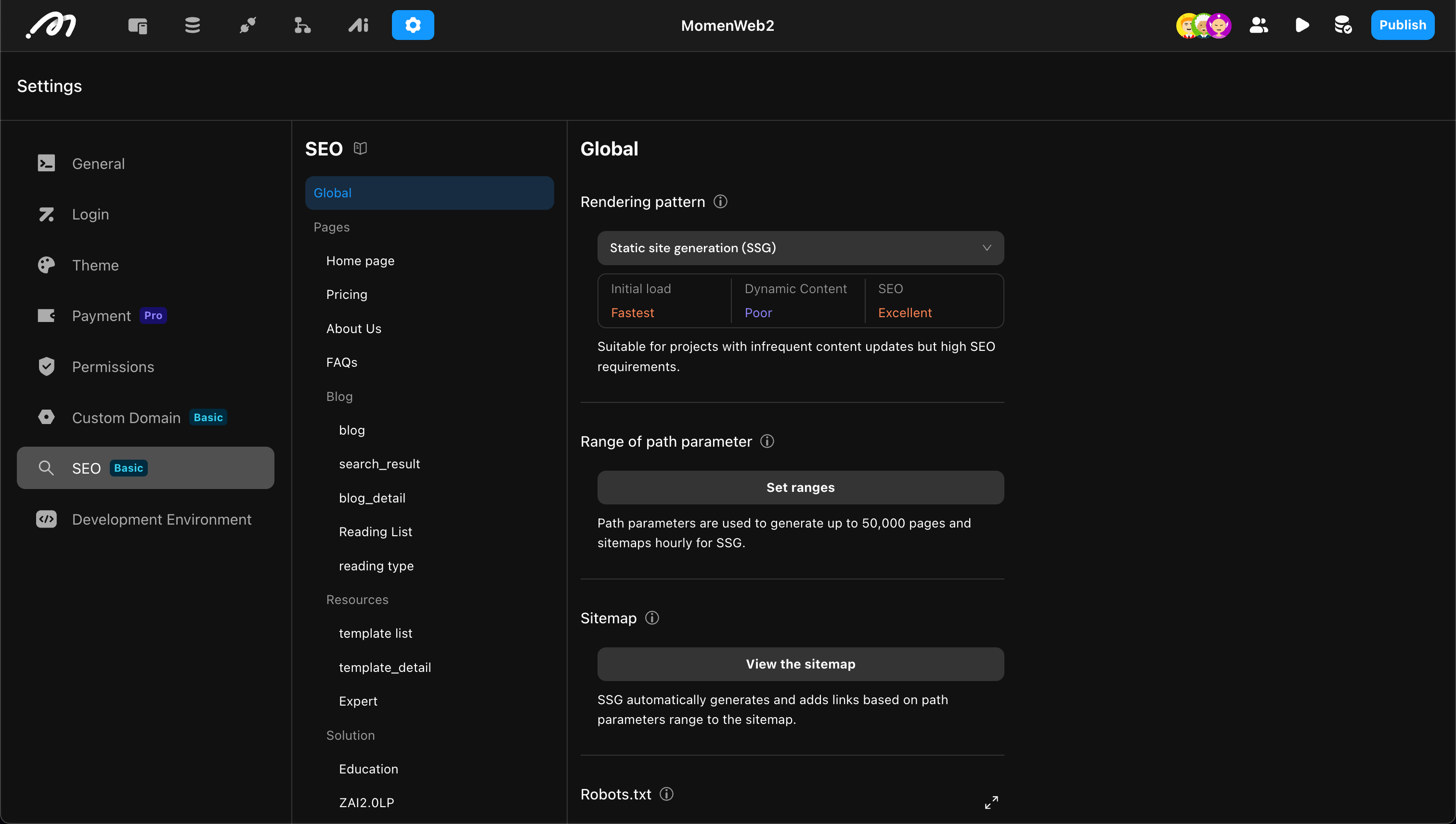
Global Settings
These settings affect all pages in the project.
Rendering Pattern
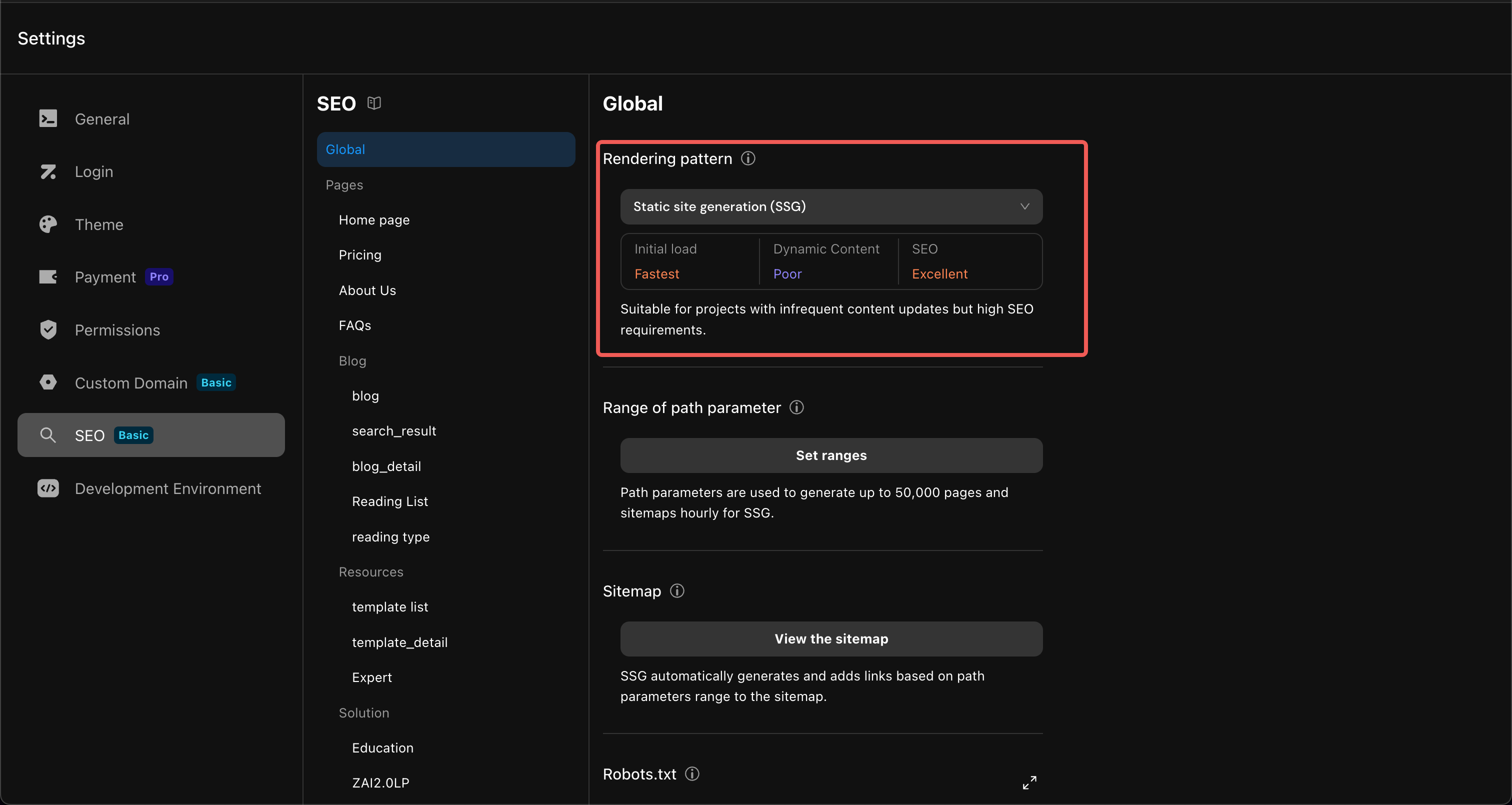
Rendering patterns determine when and how pages are rendered, directly impacting performance and SEO. Momen supports:
- Client-Side Rendering (CSR): Pages are rendered in the browser. Slower initial load and poor SEO.
- Server-Side Rendering (SSR): Pages are rendered on the server and sent to the browser. Faster initial load and better SEO.
- Static Site Generation (SSG): Pages are pre-rendered and saved on the server at publication. Fastest load and best SEO.
| CSR | SSR | SSG | |
|---|---|---|---|
| When rendered | Browser | Server | At publication, saved on server |
| Initial load speed | Slow | Fast | Very fast |
| Content dynamism | High | High | Low |
| SEO performance | Poor | Strong | Strong |
| Suitable scenarios | Internal tools, low SEO | E-commerce, news, high SEO | Blogs, docs, landing pages, high SEO |
You can check the rendering method in the HTML <head>.
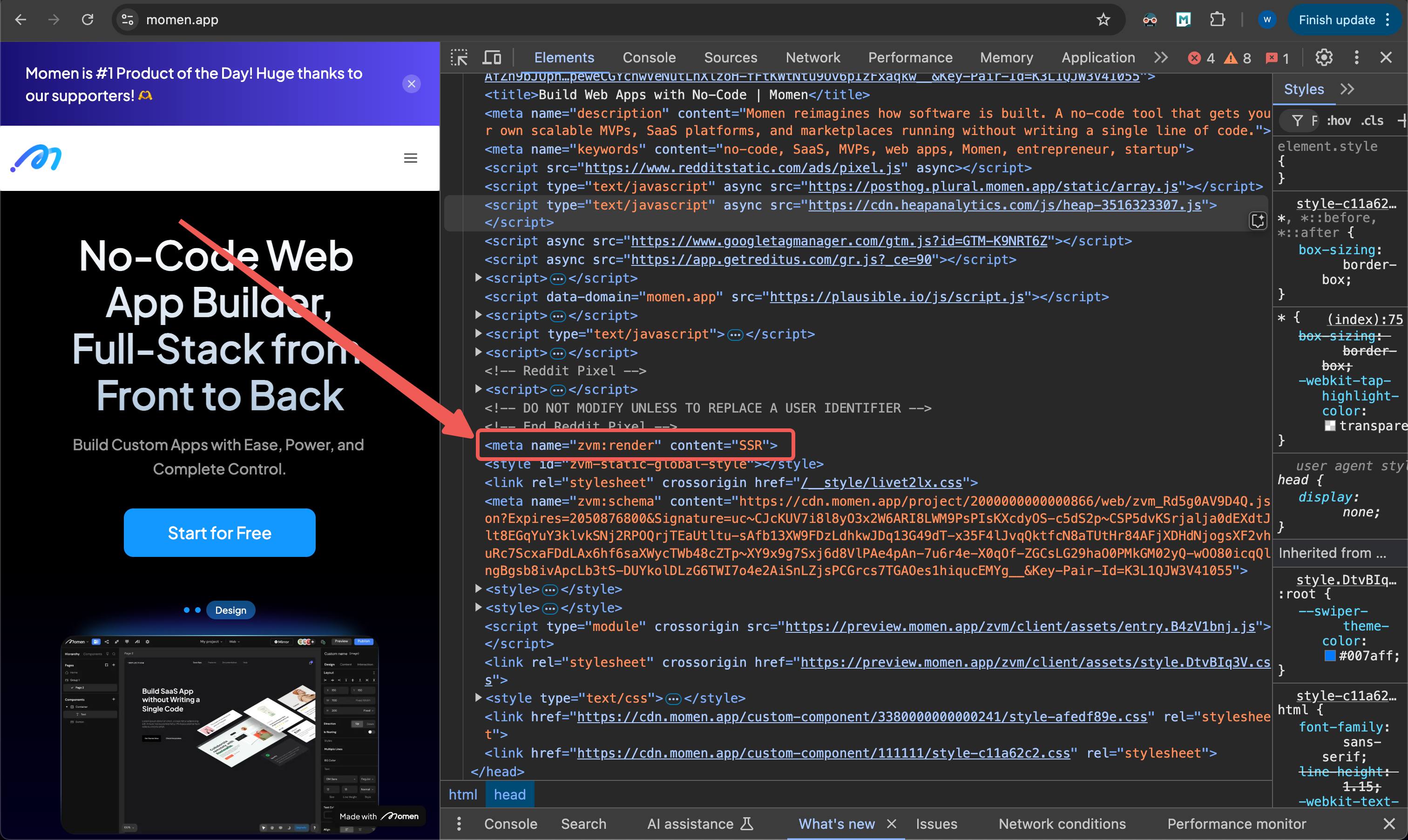
For more details, refer to online resources.
Range of path parameters
Why define the range of path parameters?
When a page is configured with path parameters (see Parameter ), its URL becomes dynamic, effectively serving as a template with variable segments.
For example, consider the blog page on the Momen official website. Its URL pattern is momen.app/blogs/${slug}, where ${slug} represents a path parameter. You must specify all possible values for this parameter so that the system can:
- Generate all corresponding page URLs and include them in the sitemap.xml.
- In SSG mode, pre-render and build static HTML pages for each URL.
In SSG mode, if a URL is not covered by the parameter values you provide (e.g., a newly published article that hasn’t been pre-built), users visiting that page will receive it via CSR.
How to configure parameter ranges?
You can provide parameter values using either of the following methods. The system will automatically merge and deduplicate these values to produce the final list of pages:
- Static Data: Manually enter fixed values, suitable for pages with a predetermined set of URLs.
- Database: Dynamically retrieve parameter values from a specified data table. You can apply filter conditions to precisely control which pages are generated.
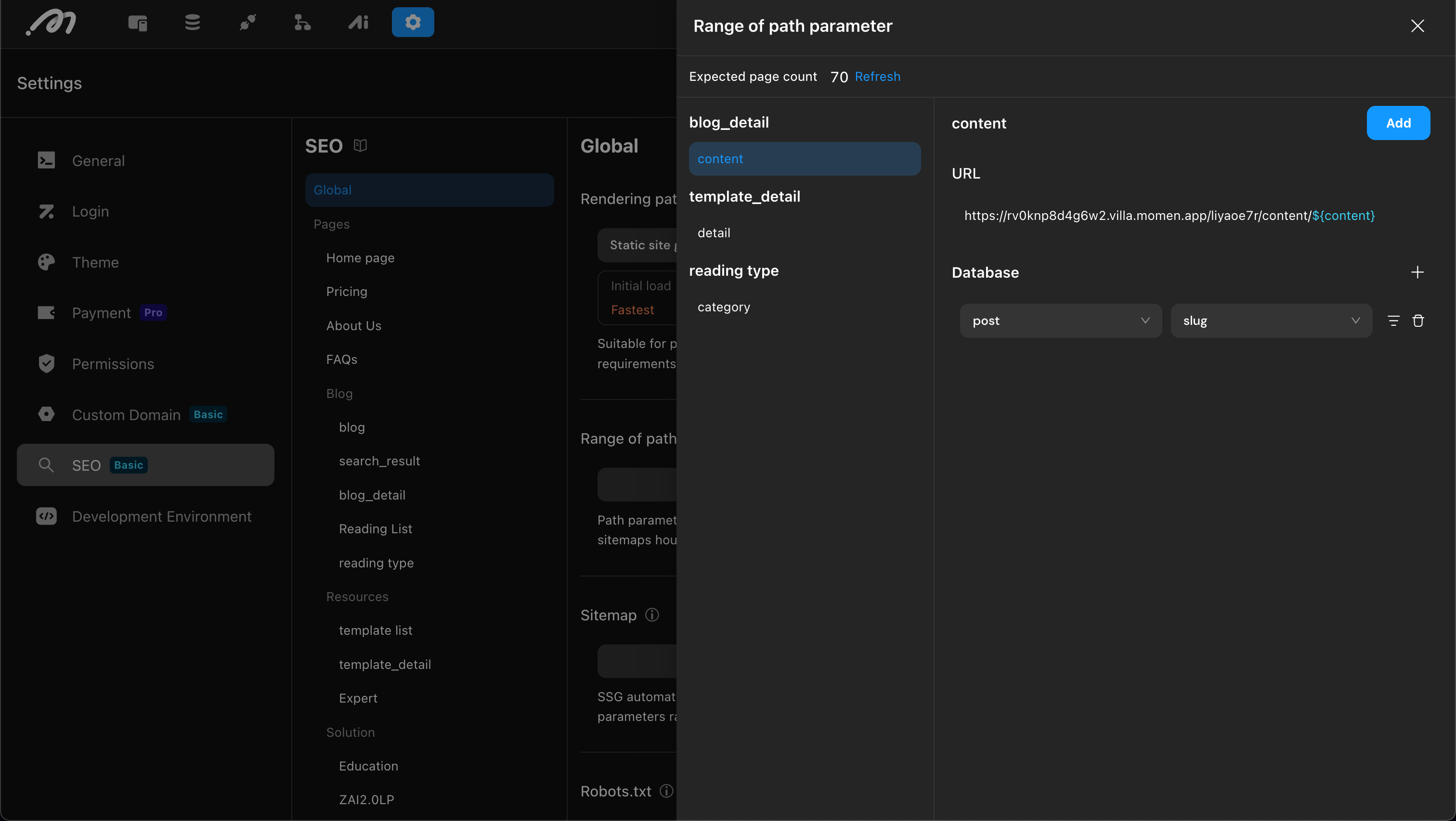
Configuration Example
Continuing with the blog article page example, you can configure the parameter source as follows:
- Data table: blog
- Field: slug
- Filter condition: published == true
Suppose the blog table contains the following five records:
| id | slug | published |
|---|---|---|
| 1 | integrate-gpt5-momen-no-code-ai | true |
| 2 | build-legal-assistant-with-momen | true |
| 3 | ai-legal-document-analysis-built-with-momen | true |
| 4 | momen-product-update-version-1.0.8 | false |
| 5 | nocode-erp-success-how-this-company-transformed-a-legacy-business-with-momen | false |
The following three URLs and their corresponding pages will be generated:
| URL |
|---|
| momen.app/blogs/integrate-gpt5-momen-no-code-ai |
| momen.app/blogs/build-legal-assistant-with-momen |
| momen.app/blogs/ai-legal-document-analysis-built-with-momen |
Sitemap
A sitemap helps search engines understand your site structure.
- Real-time update: URLs are added after user visits.
- Advantage: Dynamic.
- Disadvantage: May miss unvisited pages.
- Pre-generation: Fixed sitemap generated at publication.
- Advantage: Complete if parameters are set correctly.
- Disadvantage: Requires re-publication after data changes.
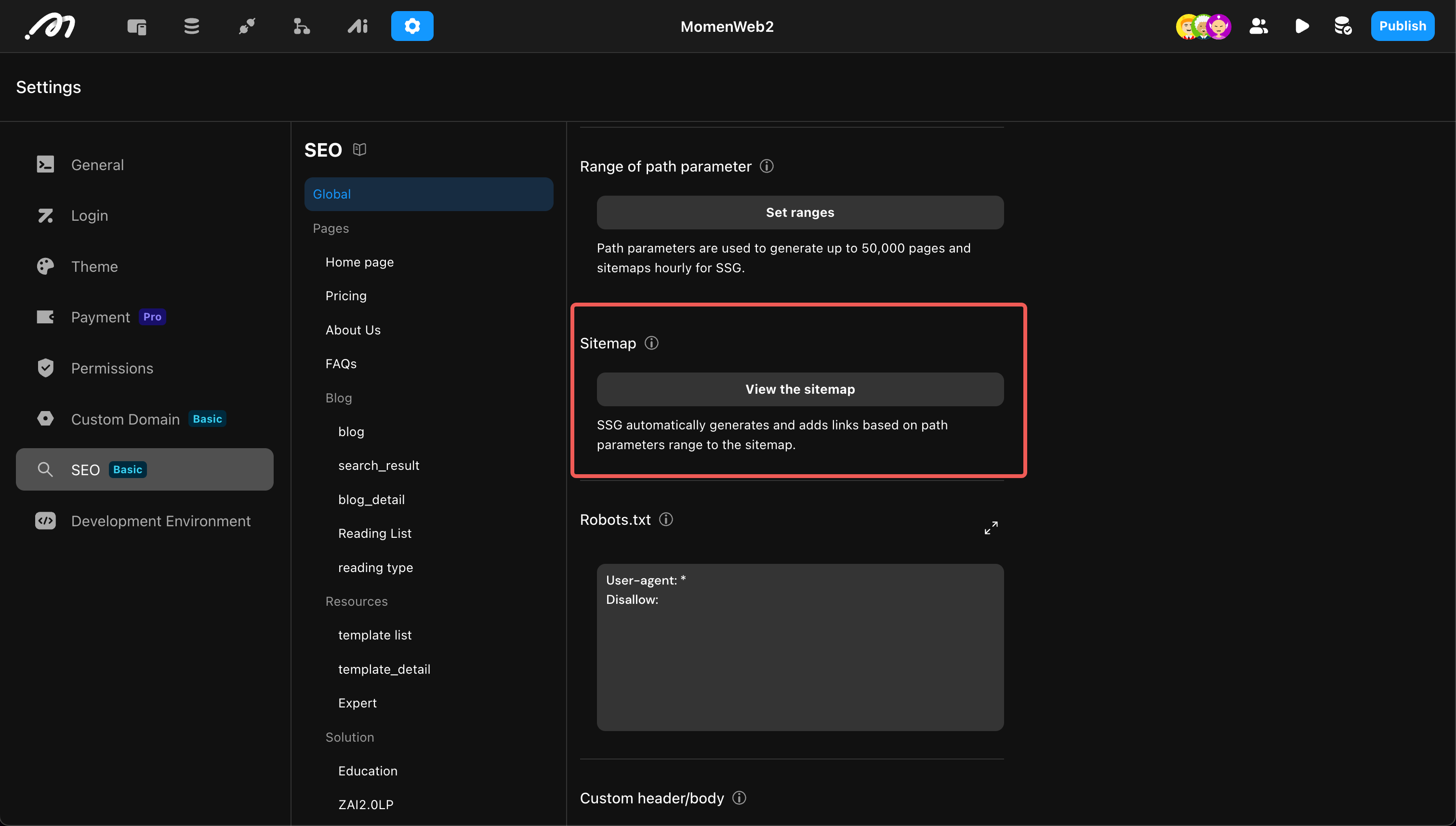
robots.txt
The robots.txt file controls which pages search engines can crawl.
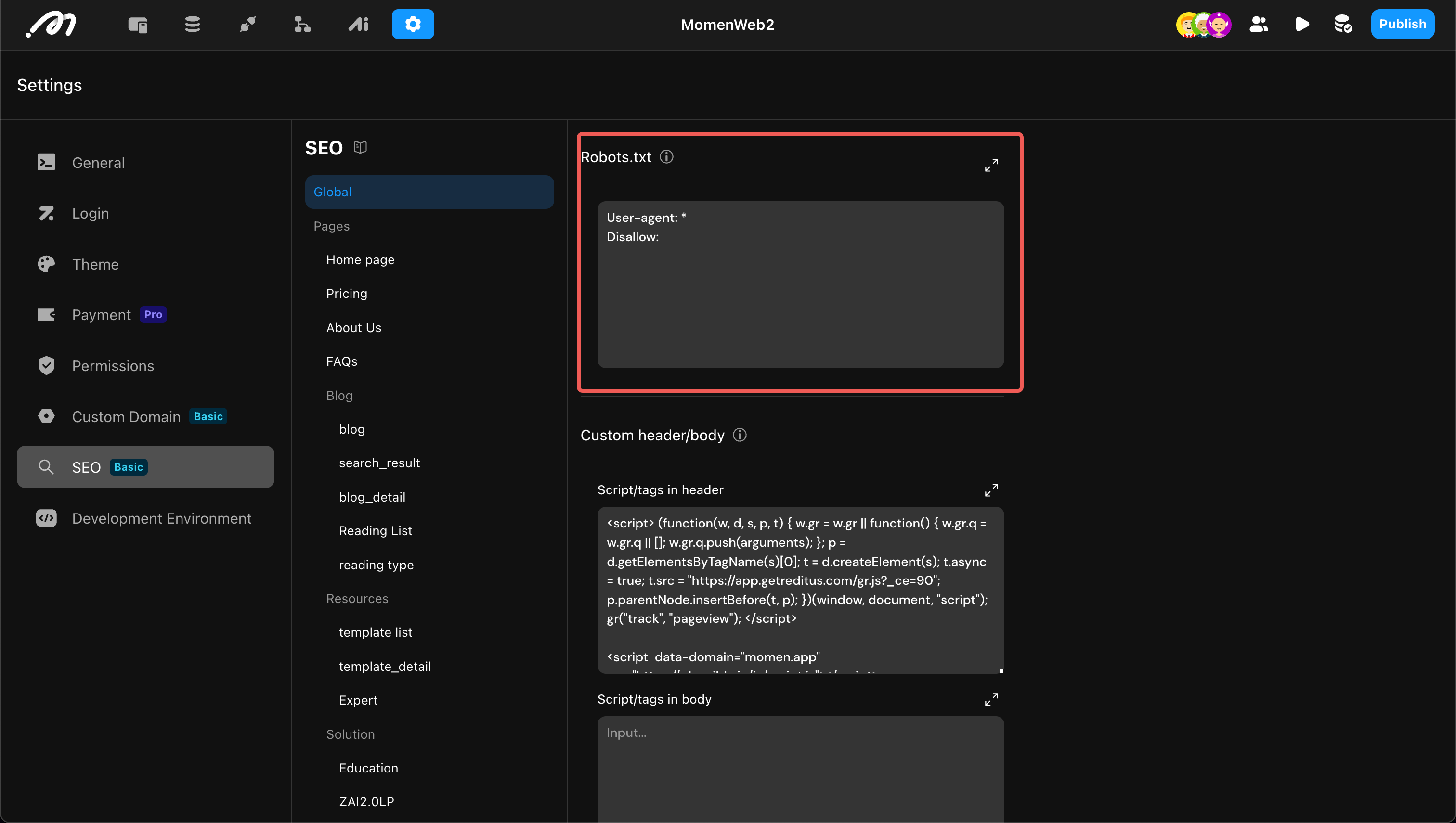
Custom header/body
Add extra tags (<meta />, <canonical />, etc.) to the HTML header/body for SEO or code injection (e.g., analytics).
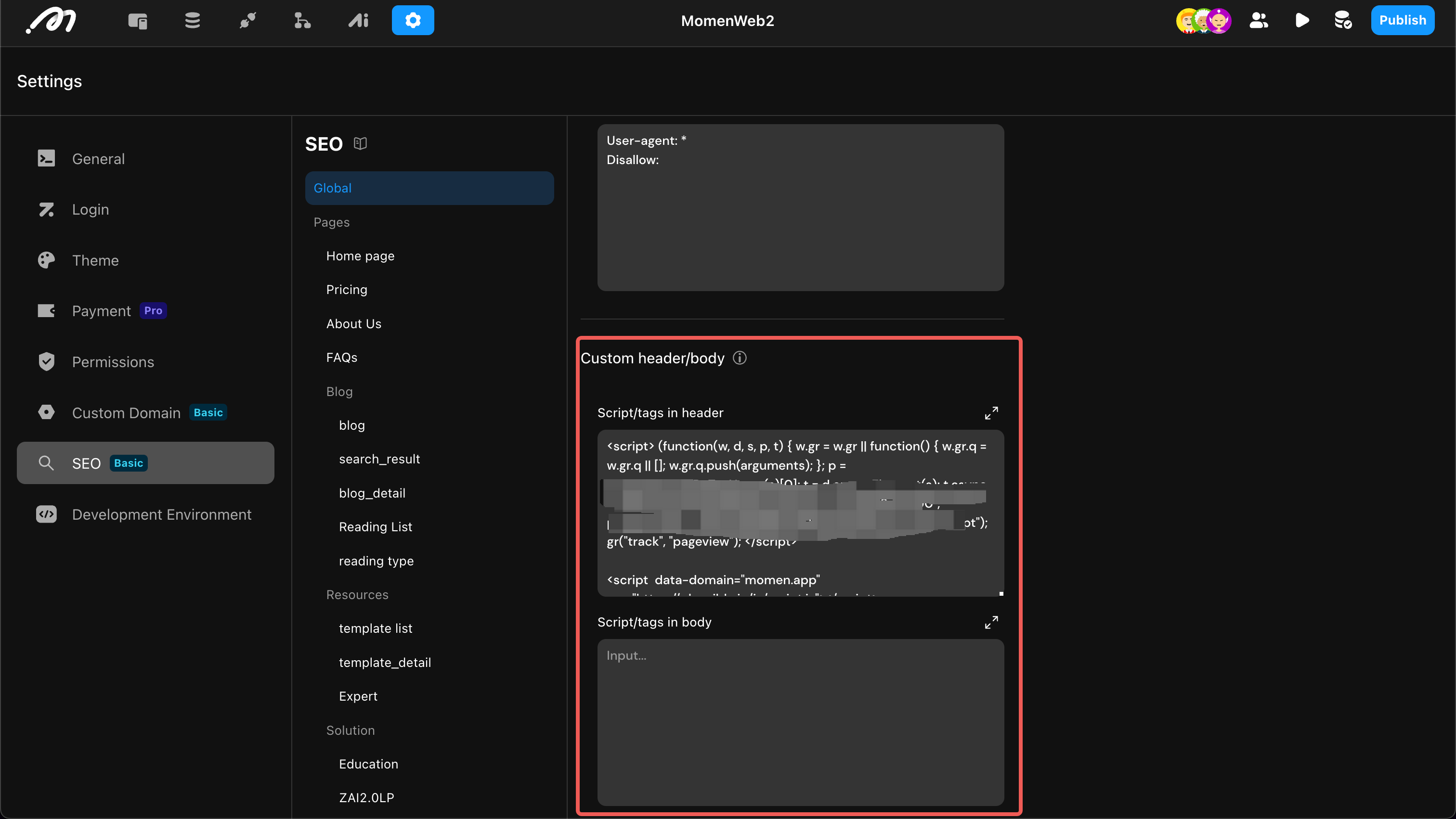
Page Settings
These settings apply to individual pages.
SEO TDK
Set the Title, Description, and Keywords for a page.
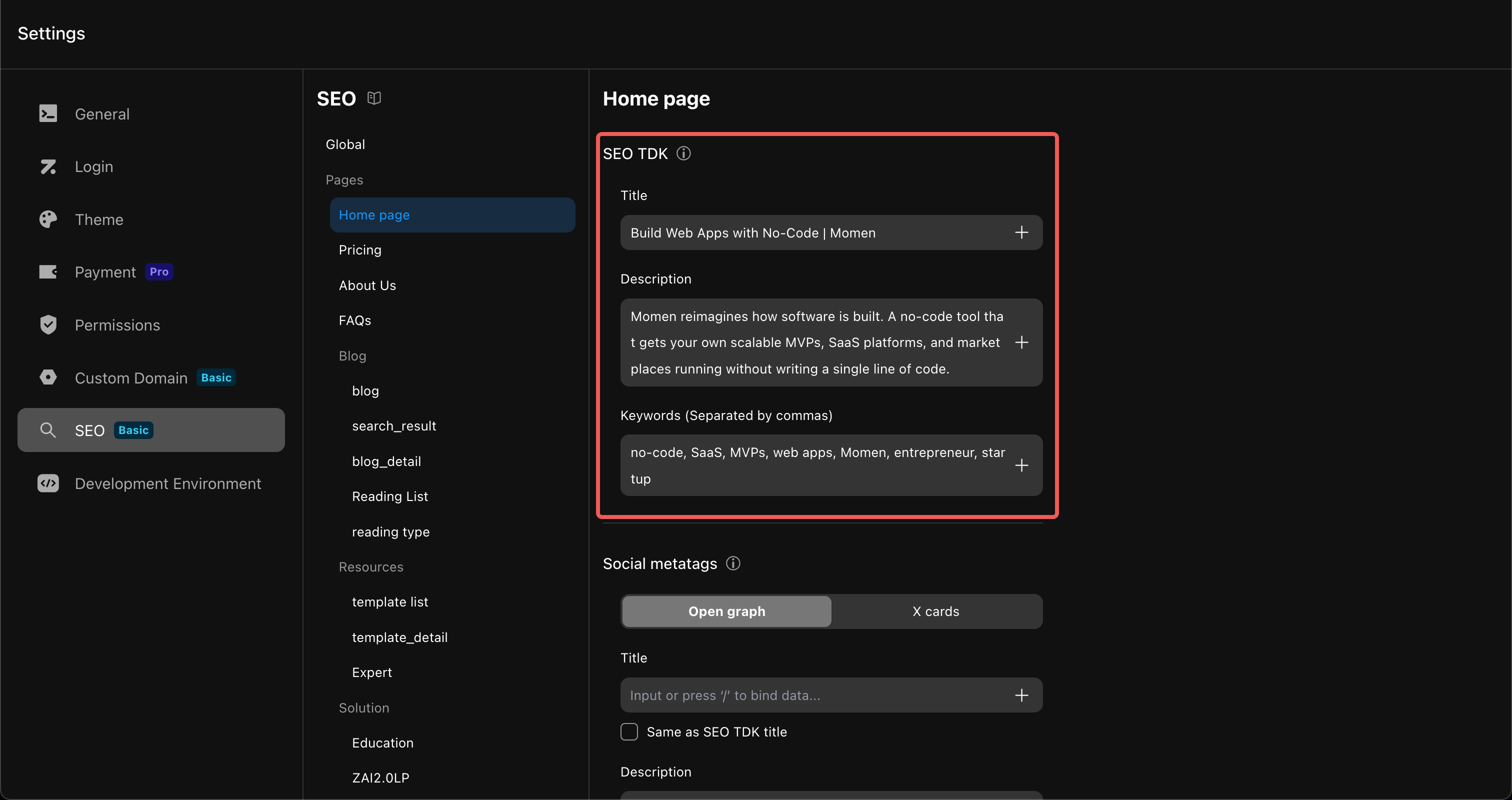
Social Media Content
Configure how your page appears when shared on social media. Momen supports:
- Open Graph: For most platforms.
- X Cards: For the X platform.
Both can be enabled.
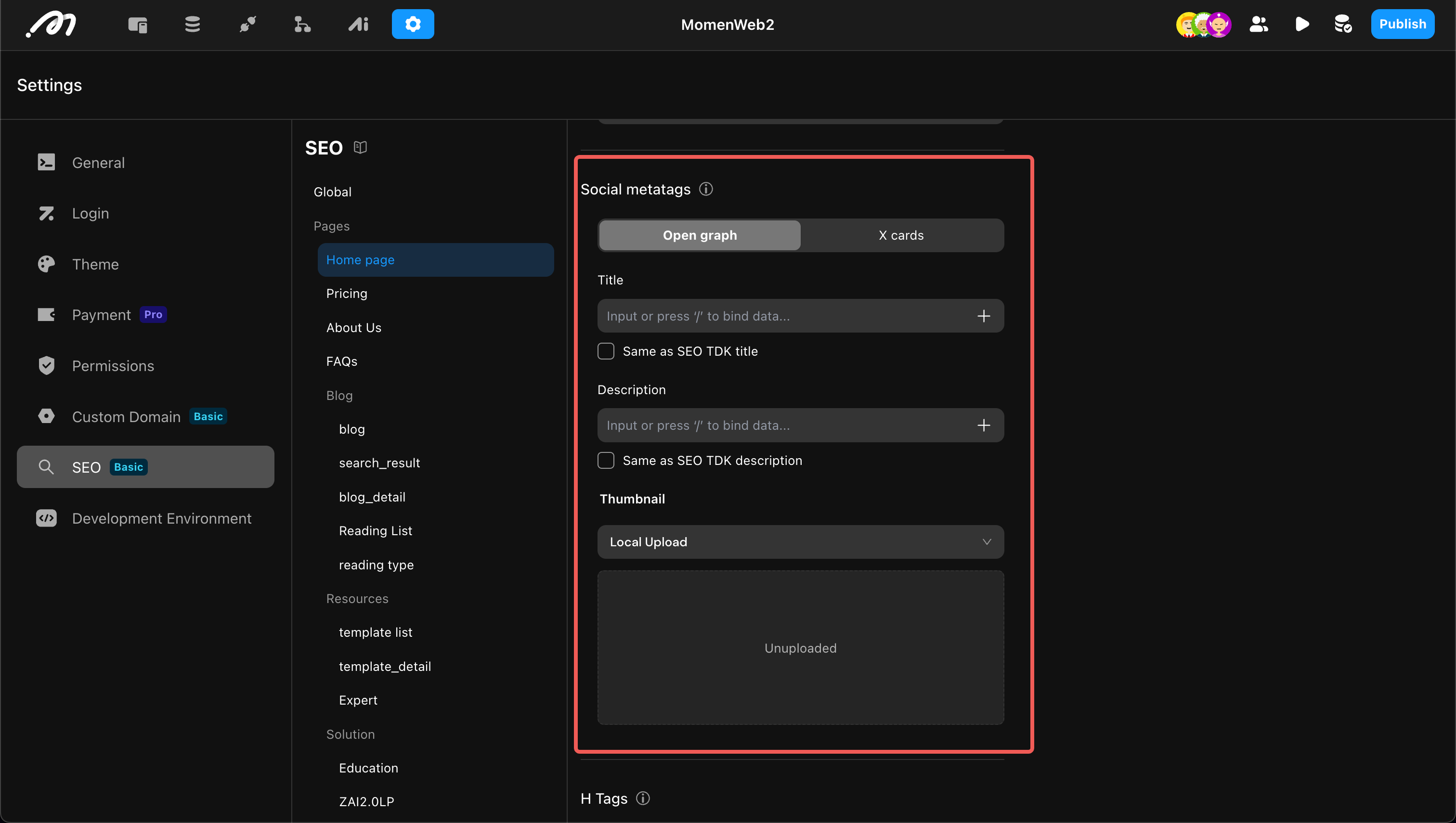
H tags
H tags define page structure and hierarchy for search engines.
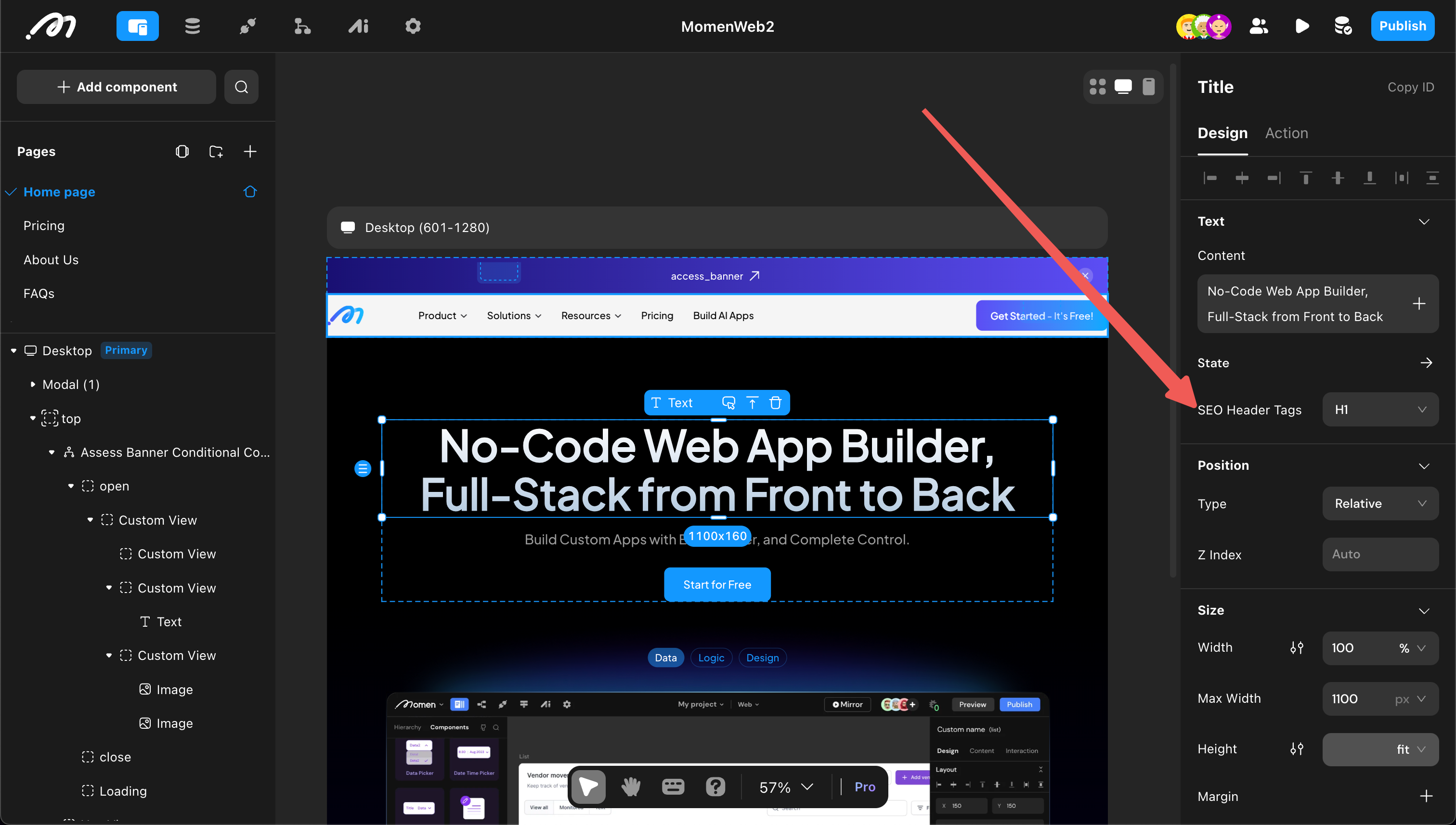
Image ALT Attributes
The alt attribute helps search engines understand images.
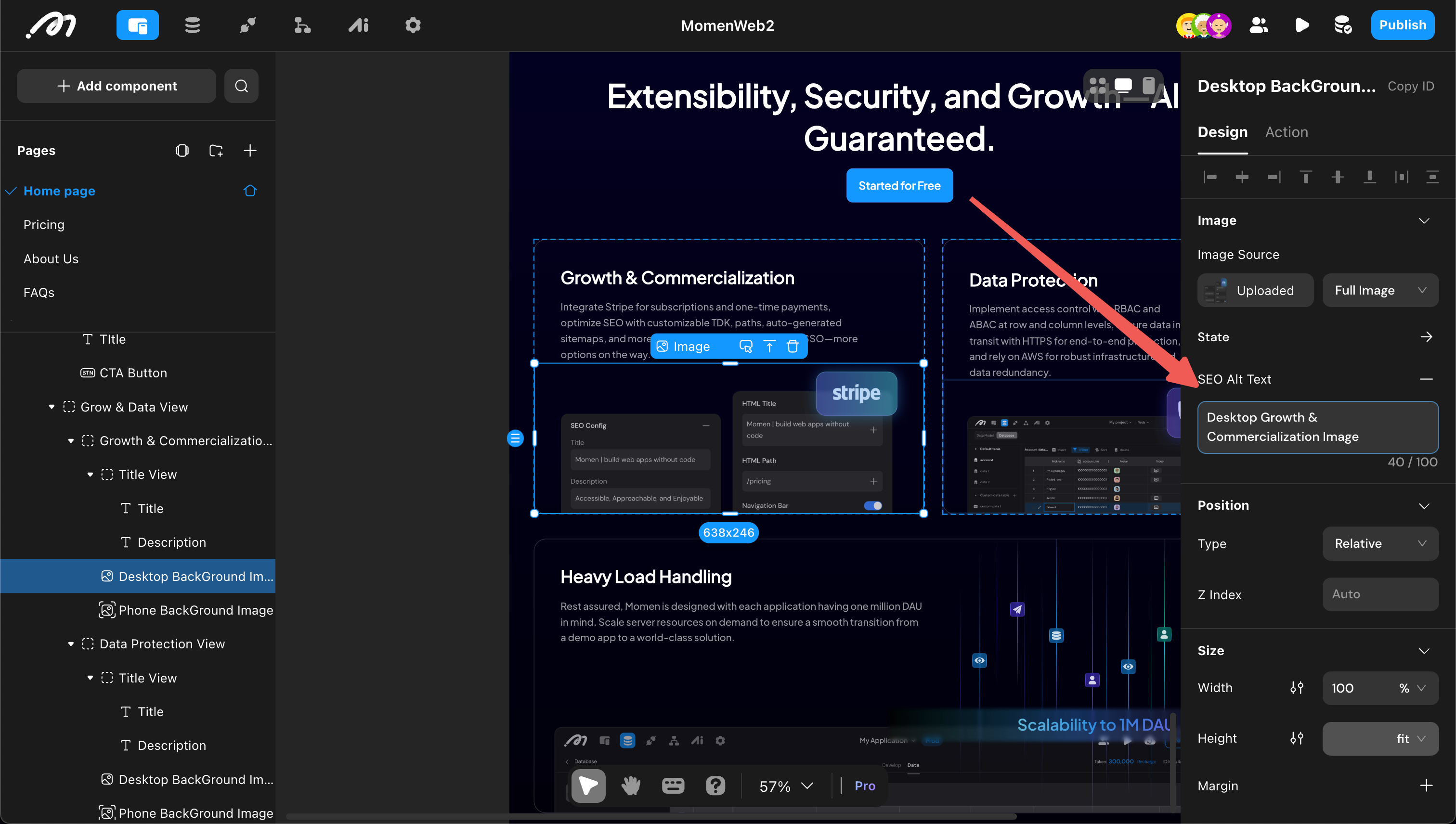
Publishing
All SEO configurations take effect only after the Project is Published.
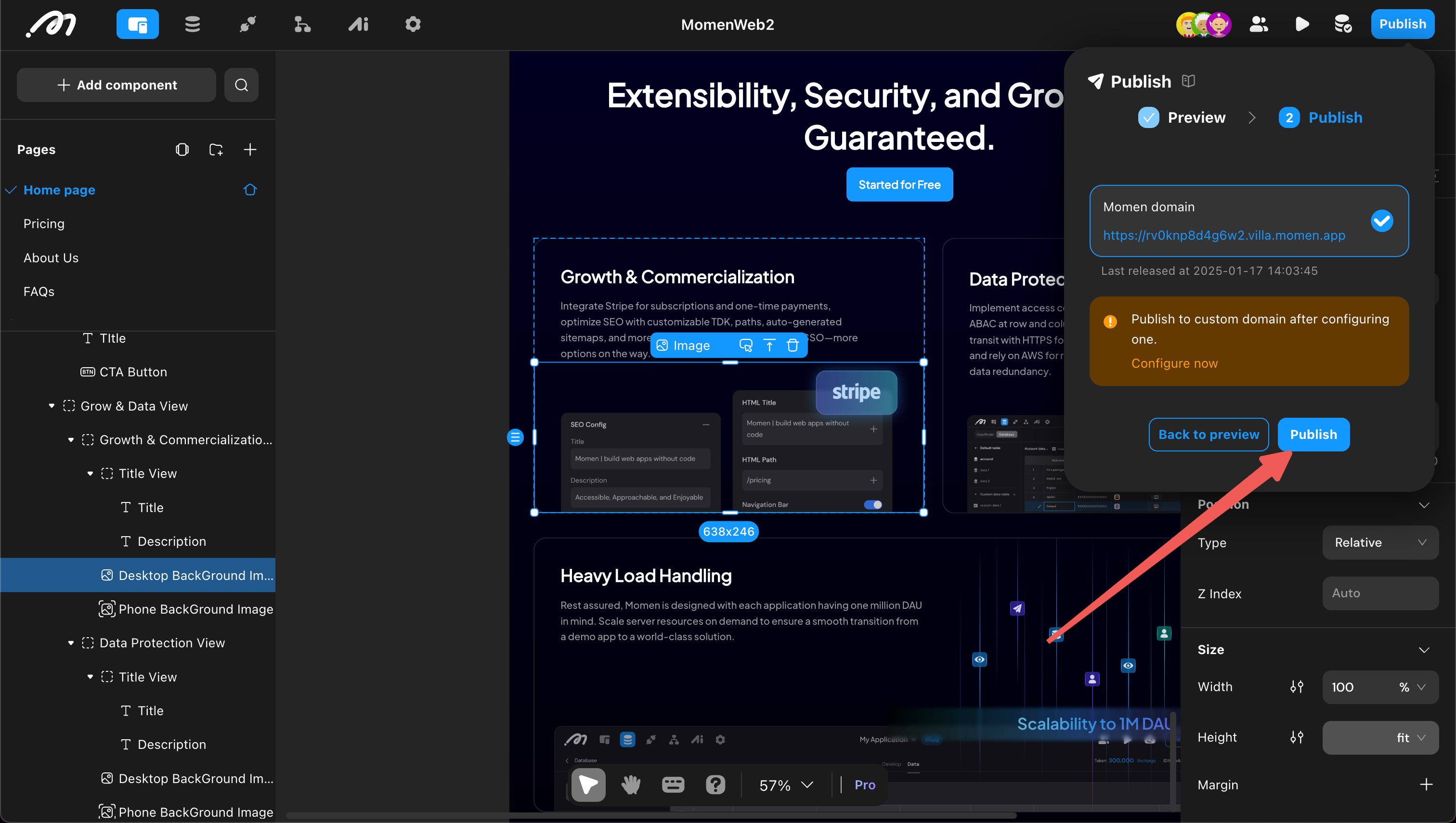
Feature Availability
SEO features depend on the rendering mode supported by your plan:
| Plan | Supported Rendering Patterns |
|---|---|
| Free Version | CSR |
| Basic Plan | CSR, SSG |
| Pro Plan | CSR, SSG |
| Single Tenant Server | CSR, SSR, SSG |
In CSR mode, page-level configurations (TDK, social media, etc.) are not available.